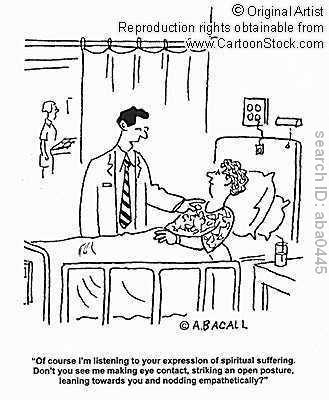I have not met anybody in a workplace who says Equity, Diversity & Inclusion (EDI) is not important. Most people mean it when they say they care about fairness, diversity etc. Yet, inspite of these statements and good intentions, the progress is slow. Why?
In my opinion, beyond a point, EDI will not improve if three key ingredients: emapthy, compassion and willingness to change, are missing.
EDI is about people not just statistics or list of protected/identity characteristics. The policies, processes no matter how equitable and inclusive they are, will fail, unless properly implemented by people who understand the “why” to some extent.
So, what personal qualities does it take for people to be truly doing EDI?
I’m going to start with compassion. Compassion can be thought of as feelings that arise when you are confronted with another’s suffering and feel motivated to relieve that suffering. It is one step beyond emapthy, in that we don’t stop at feeling the other’s emotion, we wish to do something to help. When people feel compassion they can see the importance of how they work and it’s imapct on others, motivating them to work in ways that are more equitable, more inclusive.
Willingness to change is the second ingredient. It is hard to change our work habits, ways of thinking, making decisions, talking to people… unless we can see the problem with our methods, it is hard to be motivated to change. After all why fix something if it’s not broken?
The counter perspective to that is: if everything is being done well, why is there inequity or lack of fairness, lack of diversity? If all the efforts that people make at their individual level, and organisations make at collective levels are right, why are things not great- something is missing! This points to a need to examine our behaviours, our thoughts and change. If it is unconscious bias, or some issue, we can and should address it. Being able to reflect on one’s behaviours is necessary for any desired change to take place.
Even when we do see bad outcomes from decisions/policies or poor behaviours, it can be hard to change. We dont like calling out people. We dont like interfering in an incident. We dont want to be responsible for disciplinging somebody. We dont know how to tell a more senior person to improve their behaviour. These situations are hugely uncomfortable. At the root is the need for change.
And finally, I want to talk about empathy. I quote this from the Greater Good Magazine: “…Empathy…ability to sense other people’s emotions, coupled with the ability to imagine what someone else might be thinking or feeling. …two types of empathy: “Affective empathy” refers to the sensations and feelings we get in response to others’ emotions; this can include mirroring what that person is feeling, or just feeling stressed when we detect another’s fear or anxiety. “Cognitive empathy,” sometimes called “perspective taking,” refers to our ability to identify and understand other people’s emotions.”
Beign able to empathise can help us go beyond our own lived experience and change our thoughts, behaviours- sometimes this is for the better and for EDI. Try this fun quiz to see how you are on empathy.
However, empathy is not always the golden ticekt to EDI by itself. We can be biased in whom we feel emapthetic towards -usually people more like us. This can exacerbate divisions. It is hard to feel empathetic towards large numbers of people- usually we feel or share the feelings of individuals close to us. See the paragraph on connection between empathy and bias here. See also an interview with Paul Bloom (a psychologist, who wrote Against Empathy).
Empathy is a tool: it makes us feel and/or think a little bit the same as someone else. The tool can lead us to bad decisions, so it needs to be used with care, with compassion, with reason and values.
I want to end this (long!) post with an experience that changed me:
In 2012, I volunteered for the London Olympics. As a London Ambassador I was posted at Heathrow Airport- where I stood in my colourful, cheap uniform, assisting international travellers and tourists who had just deplaned.
Most people I assisted did not realise I was a volunteer. They saw they uniform and saw me largely as the function they thought I was meant to fulfil- not as a person. They had no idea or interest that I had a full time job, I had a PhD etc… By just putting on that uniform, in one moment, all the things important about me were stripped away. I was dehumanised.
Many people were quite rude. Some didnt make eye contact while talking to me. Some treated me as though I was stupid or had a low intellect. Many behaved as though I was inferior to them.
It was an eyeopening experience!!
It made me wonder: Do I treat people that way? Do I without realising treat people as lesser? People such as transport staff, shop assistants, serving staff, people in uniforms, and others…
I didnt like what I saw in my past behaviour and I resoleved to change that. Today I hope I treat people, all people, with more respect and as my equals.
So I challenge you: step outside your comfort zone and do something to be in someone else’s shoes. What does it tell you about yourself?

